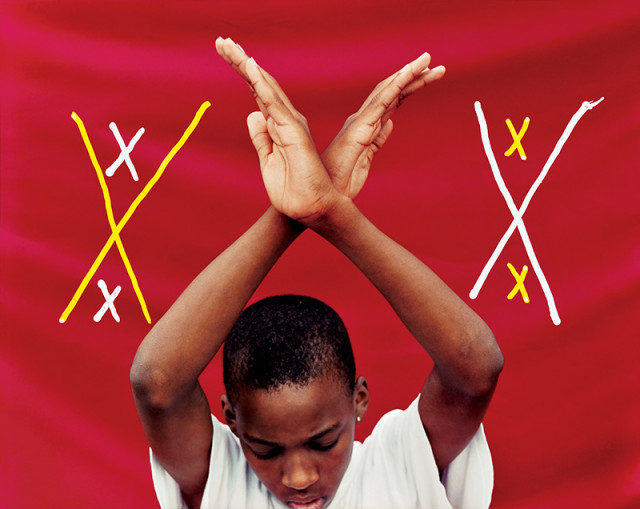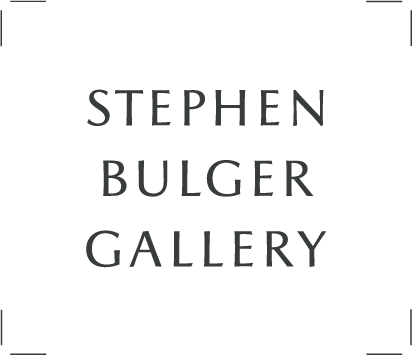Exhibition Dates: November 20, 2021 – January 15, 2022
Wendy Ewald in attendance: Saturday, November 20, 2021, 11am-6pm
To book your visit, or to attend the opening day, visit here.
Wendy Ewald in conversation with Paul Roth, Director of the Ryerson Image Centre, Tanenbaum Lecture Series (virtual): Friday November 19, 2021, 7pm
To view a recording of the lecture, visit here.
The gallery is pleased to present “The Pictures Woke the People Up: Canada, Colombia and American Alphabets”, our first solo exhibition with acclaimed photographer Wendy Ewald which announces our representation of her work. For over fifty years, Ewald has collaborated on art projects with children, families, women, and teachers in Labrador, Colombia, India, South Africa, Saudi Arabia, Holland, Mexico, Morocco, the United Kingdom, and the United States.
Working as a photographer and teacher, Ewald’s projects emphasize a method of collaboration that challenges the distinctions between photographer and subject. Adopting a variety of approaches, she creates projects based on a reciprocal vs. hierarchical approach. Her goal is to provide the vision of her subjects rather than merely make images of them. Through her documentary investigations of places and communities, Ewald probes questions of identity and cultural differences. In her work with children and women, she encourages them to use cameras to record themselves, their families, and their communities, and to articulate their fantasies and dreams.
This exhibition presents a selection of work from various stages of her career. During Ewald’s college years, starting in 1969, she worked with Indigenous children in Sheshatshiu, Labrador and in Eskɨnuopitijk, New Brunswick. She observed that her photography was restrained partially by a reticence to disturb her subjects. Her students’ approached their work in a more dynamic fashion. While photographing the same scene as 14-year-old Merton Ward, she was struck by the difference. Her photographs were clear renderings of the evidence before her, whereas his portrayed life on the reservation was more expressive. She successfully applied to the Polaroid Foundation for cameras and film for her students, which enabled her to work there for four summers. We will exhibit vintage prints from that period, a film, as well as colour work made during visits to the region 39 years later.
After working in the Appalachian Mountains in the 70s, Ewald travelled to Latin America to create work within another rural community. She was awarded a Fulbright Scholarship in 1982 to photograph and teach photography in a Colombian village. She hoped that by working outside her native language she would be forced to rely on her visual skills. She was also introduced to Alicia Vásquez, a single mother living with three young sons in an invasion barrio in Bogota. Over time, she shared her life story with Ewald who brought her books of classical literature. Her mother María and other members of the family told their stories which prompted Ewald to illustrate the family’s memoir. Alicia was uncomfortable around a camera. Photographs made by Ewald and the children she taught in the village of Ráquira are interwoven with transcribed and edited stories of the Vásquez family. Our exhibition displays an excerpt from the book of this work, MAGIC EYES: Scenes From An Andean Girlhood.
In 1991, Ewald became a senior research associate at Duke University’s Center for Documentary Studies and founded the Literacy through Photography program for Durham Public Schools in North Carolina. During this time, she became aware of the language barrier amongst immigrant and local communities. She recognized the prevalence of cultural descriptors in North American children’s alphabet primers (i.e ‘C’ is for ‘Car’) and collaborated with children from different backgrounds to create primers of their own. She asked students to think of words for each letter of the English and Spanish alphabets and assign them visual signs specific to their culture. Ewald photographed the signs, objects, or scenes selected. When the large-format negatives were developed, the children altered them with Sharpies, adding the letter and word they illustrated. Our exhibition will include alphabets from several communities.
Ewald has received many honors, including a MacArthur Fellowship, a Guggenheim Fellowship, and grants from the National Endowment for the Arts, The Andy Warhol Foundation, the Rauschenberg Foundation, and the Fulbright Commission. She was also a senior fellow at the Vera List Center for Art and Politics at the New School from 2000-2002. She has had solo exhibitions at the International Center of Photography, New York, the Center for Creative Photography, Tucson, the George Eastman House, Rochester, Nederlands Fotomuseum, Rotterdam, the Fotomuseum, Wintherthur, Switzerland, the Corcoran Gallery of American Art, Washington, DC, and The Queens Museum, New York, among others. Ewald’s work was included in the 1997 Whitney Biennial. She has published fourteen books, her fifth, a retrospective documenting her projects entitled Secret Games, was published by Scalo in 2000. Two books were published in 2005. A third, To The Promised Land was published in 2006 to accompany an outdoor installation in Margate, England, with “new starts” and refugees commissioned by ArtAngel. She was an artist in residence at Amherst College for eleven years where she taught the course, Collaborative Art: The practice and theory of working with communities. This Is Where I Live, which maps Israel/Palestine through 14 different communities, was published by MACK in 2015 in conjunction with a traveling exhibition, “This Place”. America, Border, Culture, Dreamer a collaboration with young immigrants to the US was published by Little Brown in Fall 2018 to accompany a public art installation in Philadelphia. Her film for PBS, Portraits and Dreams, was released in 2020 accompanied by an expanded update of the original book published in 1985. Ewald’s project for “Towards a Common Cause: Art, Social Change, and the MacArthur Fellows Program at 40” continues until December 19, 2021, throughout Chicago, presented by the Smart Museum. The book The Devil is Leaving his Cave, will be published by MACK Books in 2022. From November 8 – 28, 2021, Ewald and artist Zak Hajjaoui have collaborated on a billboard that will be on display at the corner of Richmond Street East and Parliament Street, Toronto, as part of For Freedoms North American “Billboards” exhibition. For Freedoms is an artist-led organization that models and increases creative civic engagement, discourse, and direct action.
In addition to her artistic practice, Ewald has published two books for teachers and families, I Wanna Take Me a Picture and Literacy and Justice through Photography. She has been collaborating with partners in Tanzania for the past ten years to create photographic teaching materials for the national primary and secondary school curriculums. In 2021 she developed a course in teaching and learning through images for Humanities and Education students at the University of Dodoma, Tanzania.


